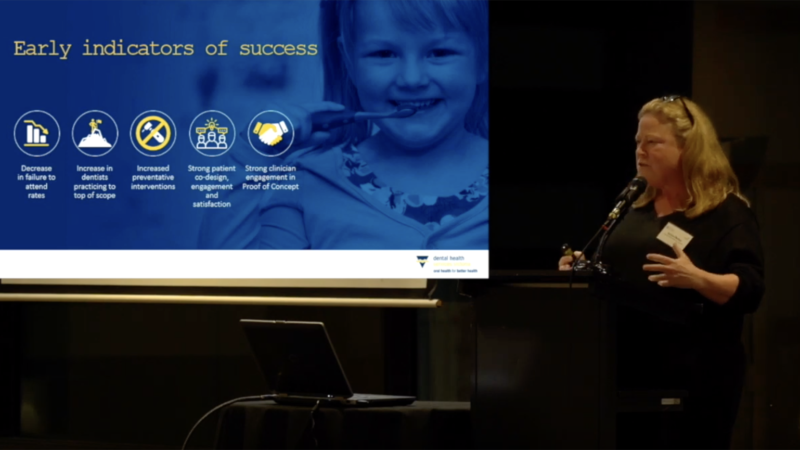INDUSTRY PERSPECTIVE
State of private healthcare in Australia
Australia’s healthcare system is often described as a mixed system, with a combination of public and private providers. While public healthcare through Medicare provides universal coverage for essential services, private healthcare offers additional options and amenities for those who can afford them.
Private Healthcare Australia (PHA) is the Australian private health insurance industry’s peak representative body that currently has 21registered health funds throughout Australia and collectively represents 98% of people covered by private health insurance. PHA member funds today provide healthcare benefits for over 14 million Australians.
Dr. Rachel David is the CEO of Private Healthcare Australia, which is a policy, advocacy and research organisation that represents Australian health insurance funds and their members.
Australian Health Journal spoke with Dr David on the trends seen in private healthcare in Australia, including the impact to private specialist consultations from workforce issues in primary health. In rising costs of living pressures to household budgets, she comments on how the industry is showing the value of private healthcare.
According to Dr. David, the services that private health insurance policyholders use are related to their age and the availability of particular services in the public hospital system.
In recent years, some procedures that were once performed in the public sector have been almost entirely shifted to private healthcare. For people under the age of 50, the predominant claim for private health insurance is mental health, followed by reproductive health and obstetrics. For men, another group claims for sporting injuries and other accidents that cannot be fixed quickly. For people aged 55-65 and 70, most claims are in the orthopaedic space, including hip replacements, knee replacements, and procedures for back pain. These are the big drivers for people to have private health insurance due to the long wait times in the public sector. As people get older, into the frail aged group, claims are related to heart disease and vascular disease, such as stents in the heart for coronary artery disease, or more major procedures like valve replacements for heart failure.
Private health insurance also covers services provided by allied health under extras cover for people seeking care in the community. The biggest claims under extras cover are for dental care, with people seeking low-cost or free dental care for things like scale and clean basic dental services and checkups.
Dr. David notes that there are a number of trends in private health insurance that have been enhanced as a result of the pandemic and the impact on the Australian economy. There have been a number of quarters of growth in private health insurance since March 2020, which is when the pandemic kicked off in Australia. This growth is due to skilled migration, more women entering the workforce, and younger people remaining on family policies until the age of 31.
On the provider side, Dr. David notes that there is a rapid return of procedural medicine into the private hospital system after the lockdowns. However, in some particular health areas, particularly mental health and rehabilitation, doctors are preferring to manage patients out of the hospital and in the community. Private health insurance providers are hoping to move with this disruption and encourage regulators to permit them to fund more care in the community and shorter stays in hospitals for people with mental health conditions and short-stay surgeries.
You Might also like
-
Sense of service and pride in uniform
This ANZAC Day 2023, Australian Health Journal releases an interview with Group Captain Kath Stein MACN, Director of Defence Force Nursing with the Royal Australian Air Force.
She talks about many masks, aside from PPE, that leadership and all nurses need to wear. Currently there is work underway on a new capability description on what a nurse brings to every level in the nursing defence structure. The advice Group Captain Stein, imparts for new recruits and those interested in joining Defence Force Nursing is to take every opportunity that arises. This is evident in her progression through her career.
-
Value-Based Health Care : Dental Health Services Victoria Case Study
Dental Health Services Victoria has implemented a value based health model for oral health, around the patient and the clinician that included both during co-design. This has been possible with a single oral health data system for the state of Victoria and staff keeping in mind the value and outcomes that patients seek.
-
Australian Healthcare and Hospitals Association Health Services and Systems Hospitals and Clinics New Content Patients
Professor Jeffrey Braithwaite on patient safety and health systems improvement
Professor Jeffrey Braithwaite is Founding Director of the Australian Institute of Health Innovation, Director of the Centre for Healthcare Resilience and Implementation Science and Professor of Health Systems Research at Macquarie University.
Professor Jeffrey Braithwaite is a leading health services and systems researcher with an international reputation for his work investigating and contributing to systems improvement.
The Australian Healthcare and Hospitals Association (AHHA) recently announced it will award the 2021 Sidney Sax medal for outstanding contributions to the development and improvement of Australia’s healthcare system to Professor Jeffrey Braithwaite.



